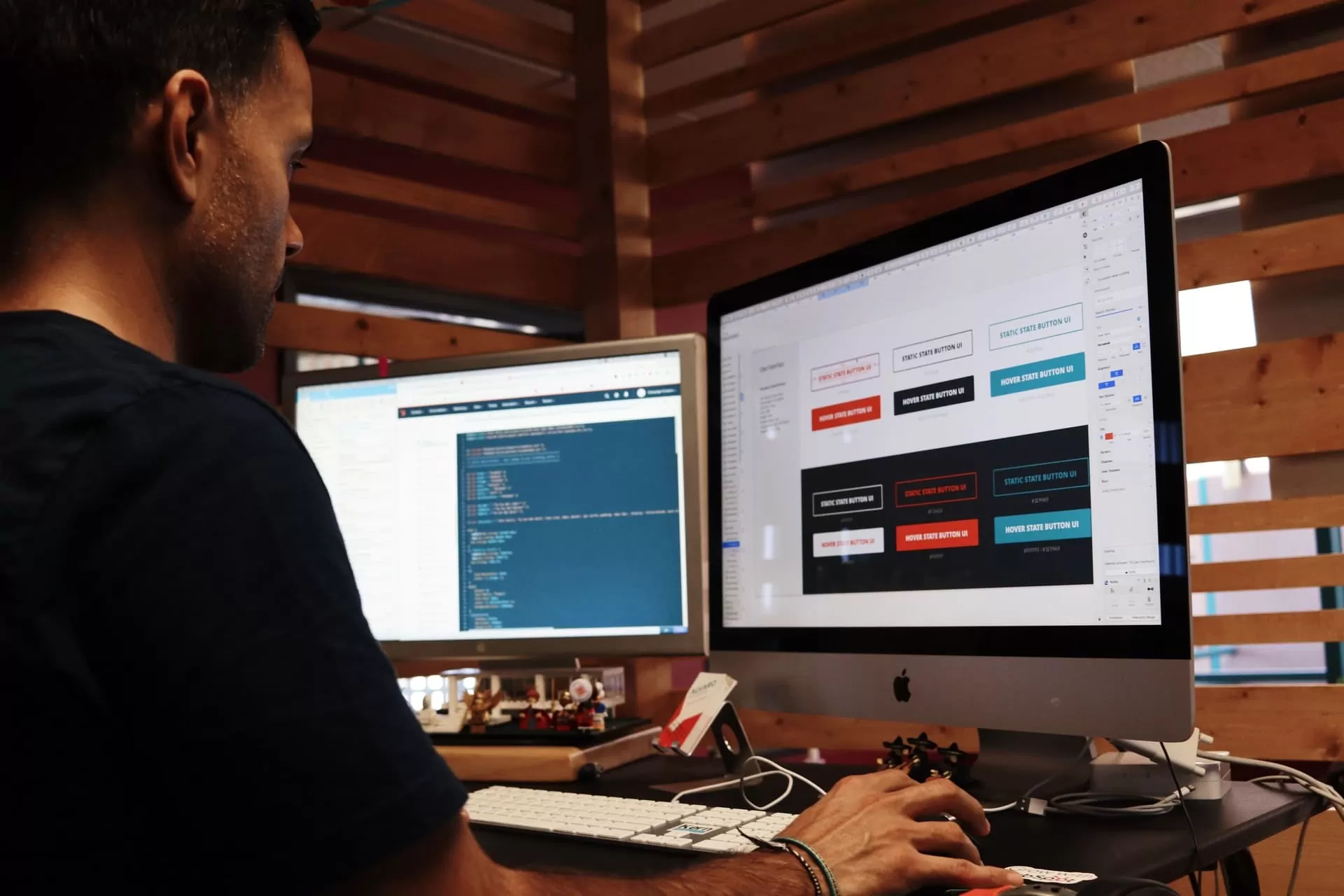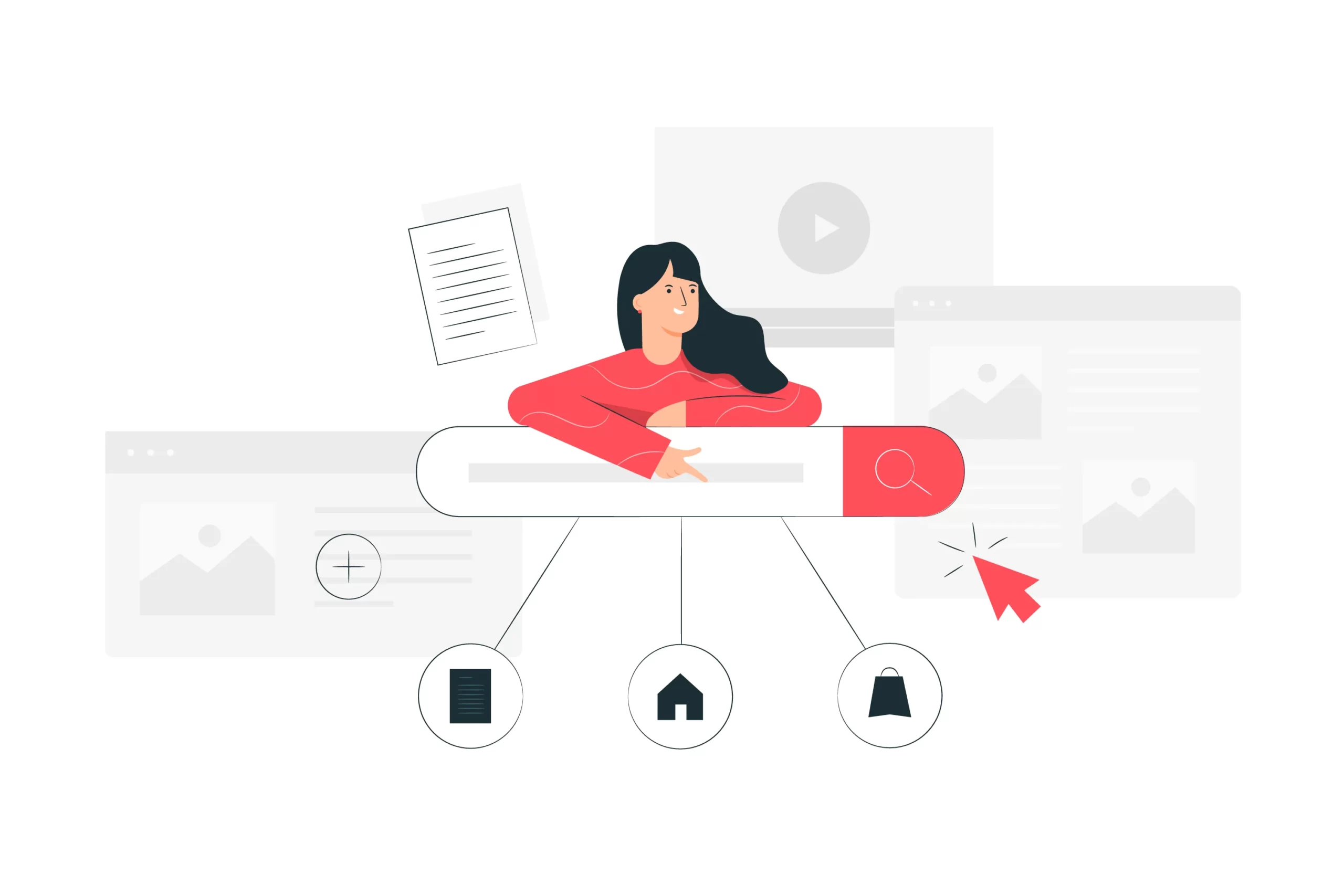Home
- Blogs
Web Design Tips: Everything you Need to Know Before Hiring a Website Design Company


I hope you enjoy reading this blog
If you need a one-to-one free consultation, contact us now click here
Your company’s web design is very important because it sets the first impression of your brand. The impression you make on your audience can either get them to be interested and hungry for more, or bored and frustrated that it would make them leave your page and turn to a competitor.
Therefore, a professional website design helps you keep your leads on your own page. In addition to that, many website-design features impact how you publish content on your website.
Consequently, this affects how search engines index your web pages. This means that if your on-page SEO is not up to standards, you will be fighting for online visibility right from the start.
Types of Web Design Methodologies
As a business owner, it’s crucial to familiarize yourself with the different types of web design methodologies, so you can decide what type of design will meet your needs. The following are types of methodologies to look at, before starting the process of designing your website:
UX/UI design
UX stands for “user experience, and UI stands for “user interface”. You will usually see them grouped together because they tend to work hand in hand. But, let’s cover everything you need to know about UX/UI design.
User experience design is the process of planning the experience a user has while interacting with your website. The objective of UX design is to make using your website, easy, logical, and enjoyable.
On the other hand, user interface design focuses on creating the look and feel of your website’s user interface. The goal is to make the user interface not only functional but also easy to use and visually appealing.
Therefore, implementing UX/UI design principles in the process of designing your website makes your website practical, easy to use, and aesthetically pleasing.
Custom web design
Custom web design is the process of creating customized websites that serves the needs and desires of your customers. These types of websites are often created by web designers and graphic designers working together, to craft custom layouts, images, videos, and other aspects of a website.
The purpose of custom website design is to create a unique website that allows a business to establish a visual identity that captures the essence of the brand and appeals to its target customers.
Website template design
Website templates are pre-designed layouts that allow you to arrange content on a webpage to create a simple, and relatively customized website for your business.
One of the biggest advantages that come with using website templates is that it requires no coding experience. You can drag and drop different elements like images, and logos and insert written text to create a unique design for your brand.
However, if you have coding experience or wish to hire a web design company. You can modify a website template or even create your own.
7 Basic Principles of Web Design
Now that you know the significance of web design for your brand to stand out from the competition. In addition to the main web design methodologies that you need to know before getting into designing your website.
It’s time to talk about the basic elements that make a quality web design. Here are 7 key principles you need to take into consideration when looking at your own website design:
1. Web design clearly describes the website’s purpose
If you’re a well-known brand or company (i.e., Coca-Cola) you may be able to get away with not having to describe who you are and what you do. But, in reality, your web design should clearly describe the purpose of the website.
Remember, customers, visit your website to obtain important information about your business. Therefore, you should seek to answer basic questions like who you are, what you do, and what’s in it for visitors.
2. It resonates with the target audience
Everything about your website design should reflect the niche market your business seeks to serve. It should speak to the right people in the right language while avoiding the use of unnecessary corporate jargon.
3. It communicates a compelling value proposition
When a visitor lands on your homepage, they instantly make a judgment about your brand within a few seconds. Therefore, communicating a powerful value proposition makes the difference between retaining and losing your leads.
4. It is optimized for multiple devices
Your website design should be highly functional, easy to navigate, and mobile-friendly. This means eliminating any design elements that get in the way of browsings, such as flash banners, animations, or pop-ups.
5. It includes clear call-to-action (CTA) buttons.
Every website design should include primary and secondary call-to-action buttons. In order to direct visitors to the next logical step, examples include “Free Trial,” “Schedule a Demo,” and “Buy Now”.
Remember, the goal of your web design is to motivate visitors to learn more about your business, and advance in the sales funnel. CTA’s tell them what to do next so they don’t end up confused or lost.
In addition to that, CTAs turn your website into a sales or lead generation engine and not just a digital brochure.
6. It’s dynamic
The best website designs are not always static. They are constantly changing to reflect the needs, problems, and questions of their visitors. Some website designs frequently change due to A/B testing or the use of dynamic content.
7. It’s visually appealing
The best website designs effectively utilize layout, CTA placement, whitespace, colors, fonts, and other design elements to build trust and communicate value.
10 Questions to Ask Before Hiring a Web Design Company
Choosing a web design company is one of the most critical decisions you make as a business owner. Unfortunately, a lot of companies claim to provide high-quality website design services but, not all of them can deliver results.
The following is a questionnaire to help you find a website design company that can actually build the website you need in 10 simple questions:
1. Can I review your web design portfolio?
By reviewing website development companies’ portfolios, you’ll gain an immediate understanding of their quality, abilities, and overall experience. In addition to that, you will get a sense of their range of skills.
A niche developer might have in-depth industry knowledge, but they’ll often create cookie-cutter designs and lack the adaptability and creativity that broad developers have.
On the other hand, broad developers can pull from experience to offer best practices from a range of industries and build very unique website designs. The choice is yours, but the broader is often the better.
2. Do you consider SEO during the web design process?
Every single website design company will say ‘yes’ to both questions, but it’s the information that comes afterward that matters most. You need to understand the company’s stand on SEO, and avoid falling for generic phrases, like “we’ll make your site SEO-friendly”.
What does that really mean? Are they setting up the basics or are they diving into your new website to analyze and improve the little things? Make sure to ask very specific questions and you’ll get the information you need.
3. What if I want to make web design changes later?
One of the most fundamental differences among web design companies is their approach to ongoing changes. All websites eventually change over time.
Some companies charge hourly for these changes, while others set up a content-management tool that makes it easy, fast, and free to update text, upload images, and add pages.
4. Who will be our main point of contact?
By asking this question you’re identifying the company’s core process, and getting a glimpse into its organizational structure. If they have no idea who will be the contact person, or they are unclear, this will cause a great deal of confusion.
However, if they assign a proper project manager to manage your website design project, then you can trust that they’re on top of their game.
5. What are your thoughts on mobile-friendly websites?
A website design company should be able to give suggestions for a mobile strategy. Whether it’s to create a completely separate mobile website or equip your primary website with a responsive web design (so it adapts to the screen size).
Website design companies should also give you tips on fixing issues that penalize your mobile search results, and offer advice on your mobile content strategy.
6. How do you price your services? How much is dedicated to strategy? What else is included in the package?
You want a website design company that goes above and beyond the standard line items such as headers, product images, number of pages, and other items.
You would want a company that devotes quality time to consulting, strategy development, content development, and other thought-provoking tasks.
In order to get the best possible website design, you need a company that takes the time to create a comprehensive strategy, build compelling content, and encourage ideas.
7. How do you handle change orders and any additions to the scope of a project?
There is no right or wrong answer here. Some website design companies have strict policies, for example, two changes are allowed for free, then a charge per change after.
While other companies are more flexible because they know how projects progress, for example, any changes can be made as long as they stay within the agreed-upon hours.
The most important thing is to know how change orders are handled before you sign a contract. This way you will know what to expect when your website design project has any additions or changes.
8. How do you measure success?
Success has different definitions. The success of your website design project should start with establishing proper benchmarks. Remember, success is not ticking all the boxes, it is the results you see during and after your website launch.
The website design company you want to hire, must identify areas for success through research and conversations with your team, then agree upon specific results. Designing an effective website is the ultimate indicator of success.
9. What type of project support do you offer?
Project support usually occurs after the website is completed. Knowing whether you can depend on the website design company to resolve issues that arise afterward, or are you on your own, will definitely help you plan accordingly.
Most companies should at least fix issues that are of their own doing, but the best companies will offer project support that goes above and beyond the required tasks.
10. Will I own all the final website content and accounts?
All the rights to content on your website including coding, copy, images, and videos should be owned by you, not the website design company. In fact, the owner of a website is responsible for all information displayed.
More importantly, all software and social media accounts should be owned by your business and not the company you hire. The best web design companies will contractually agree to ensure all content and accounts are yours to keep.
Wrap it up
Think of your website design as the digital face of your business. If you want to generate more leads and improve your conversion rate; you must invest in designing a website that motivates people to learn more about your business.
If you are looking for a website design company with a proven track record of successful projects, feel free to check out our portfolio of website design projects, and a number of client testimonials to get a look at all the awesome work we do in the world wide web.


